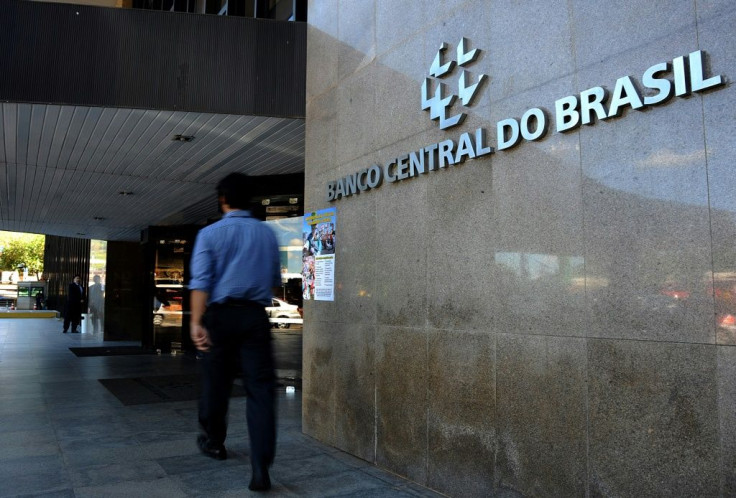Brazil Hikes Interest Rate By Most In Two Decades
Brazil's central bank raised its benchmark interest rate by 150 basis points Wednesday, to 7.75 percent -- its biggest hike since 2002 as it struggles to tame surging inflation.
The increase, which was in line with analysts' expectations, is the sixth straight for Latin America's biggest economy, whose pandemic recovery is taking a hit from soaring prices.
It was decided unanimously by the nine members of the bank's monetary policy committee, who said in a statement a hike "of the same magnitude" was likely at its next meeting, in early December.
The Selic rate started the year at an all-time low of two percent, as policy makers sought to kick-start the economy after the devastation of the pandemic.
But the central bank is now moving aggressively to raise the rate in order to tamp down the annual inflation rate, which came in at 10.25 percent last month -- far above the bank's target ceiling of 5.25 percent.
Unemployment, meanwhile, remains high at 13.2 percent, though it has come down from 14.7 percent early this year.

The lackluster economy is proving problematic for far-right President Jair Bolsonaro, whose popularity is at the lowest of his term, and whom polls currently place on track to lose Brazil's elections in one year's time to leftist ex-president Luiz Inacio Lula da Silva.
Rising food and fuel prices are hurting Brazilian households, especially the poor.
Seeking a boost, Bolsonaro announced last week he would increase welfare payments to the 17 million poorest Brazilians by 20 percent.
But that has only added to inflationary pressures. It has also raised market fears that his government is abandoning its pledges of fiscal discipline and is set to breach its spending cap, in a move critics condemn as "populist" economic policy-making.
Analysts said the central bank's hawkish rate-hike was probably influenced in part by those concerns.
Its moves to rein in inflation risk putting the brakes on economic growth, which analysts currently forecast at 4.97 percent for the year, down from 5.04 percent four weeks ago.
© Copyright AFP 2024. All rights reserved.





















